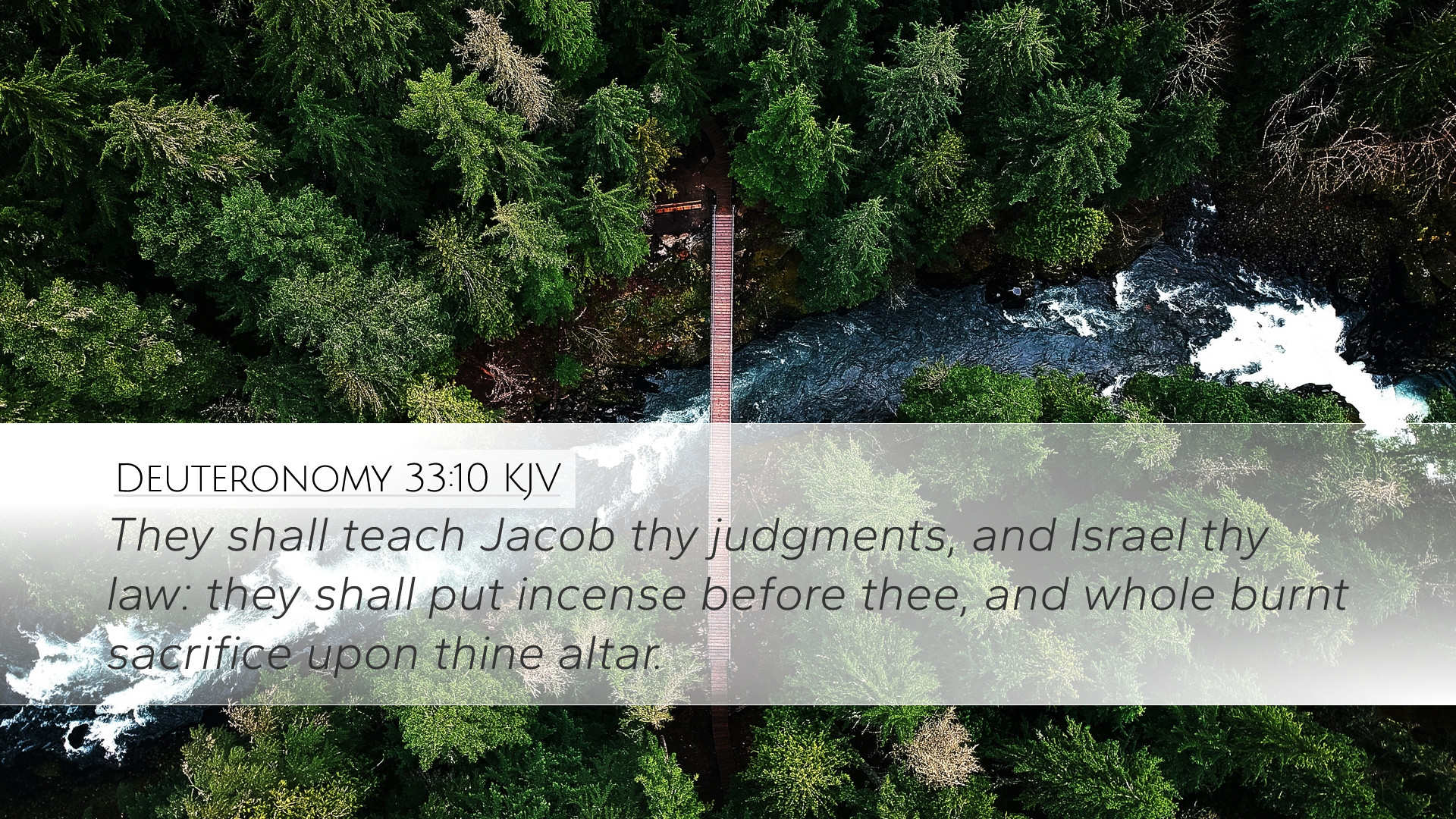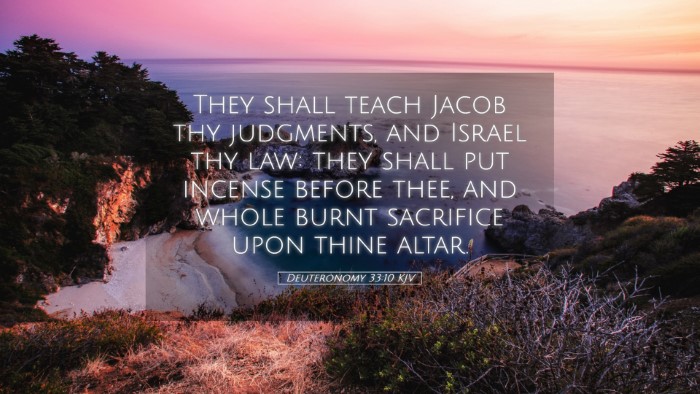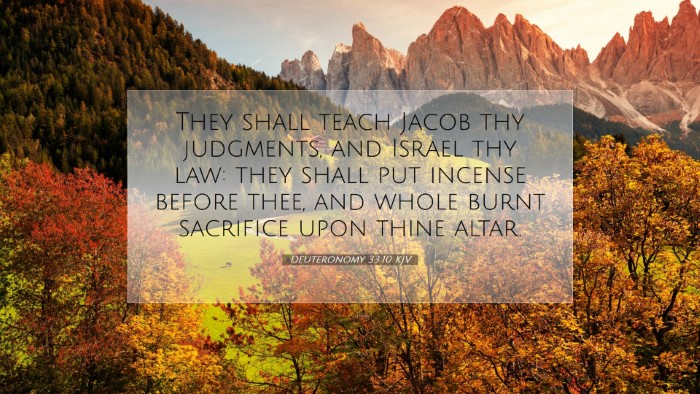Commentary on Deuteronomy 33:10
Verse Reference: Deuteronomy 33:10 - "They shall teach Jacob thy judgments, and Israel thy law: they shall put incense before thee, and whole burnt sacrifice upon thine altar."
General Overview
This verse is part of the blessings that Moses pronounced over the tribes of Israel before his death. The theological significance of this passage reflects the roles of priests and teachers within the covenant community of Israel. The verse succinctly captures the essence of Israel's sacred duties: imparting divine judgment, adhering to God’s law, and engaging in acts of worship.
Insights from Public Domain Commentaries
Matthew Henry's Commentary
Matthew Henry elaborates on the importance of teaching within the covenant community, emphasizing that "they" refers to the Levites. He notes that the Levites were tasked specifically with instructing the people in the ways of the Lord. This teaching involves both doctrinal instruction ("thy judgments") and practical application ("thy law").
Moreover, Henry highlights the dual role of the Levites not just as teachers, but as mediators of worship through incense and burnt offerings. This reflects their commitment to intercede for the people through ritual sacrifices, which symbolically represent the worship and repentance of Israel.
Albert Barnes' Notes on the Bible
Albert Barnes provides commentary that situates the verse within the broader context of Israelite worship and the pivotal role of the Levitical priests. He underscores that the instruction of Jacob and Israel signifies a broader dissemination of knowledge concerning God's laws. Barnes argues that this is indicative of a structured system of spiritual education aimed at fostering obedience to God.
Furthermore, he points out that the “incense” and “whole burnt offerings” serve as tangible expressions of worship, connecting the community of Israel back to their covenant relationship with God. He interprets the use of incense as symbolic of prayer ascending to God and emphasizes the significance of sacrifice as a means of atonement and divine favor.
Adam Clarke's Commentary
Adam Clarke provides a more detailed exploration of the Hebrew terms used in this verse, pointing out the nuances of "teach," which indicates more than mere instruction; it implies a living out of the law that exemplifies the character of God. Clarke posits that this is foundational for any priestly ministry: one must embody the principles of the law in order to effectively teach them.
Additionally, he elaborates on the ceremonial practices of the Israelites, noting that the offerings mentioned are indicative of a heart posture towards God—submissive, reverent, and thankful. Clarke suggests that these acts of worship reinforce the identity of Israel as a covenant people set apart for divine purposes.
Theological Implications
The contents of Deuteronomy 33:10 carry significant theological implications for understanding the nature of worship and community in the Old Testament.
- Covenantal Responsibility: The role of teaching and sacrificial worship highlights the responsibilities placed upon leaders within the covenant community.
- Divine Revelation: The legal and ethical guidelines given to Israel reflect God’s nature and character, revealing moral frameworks intended for community governance.
- Mediation and Intercession: The priestly functions underscore the significance of mediation between God and humanity, foreshadowing the ultimate Priest, Jesus Christ.
- Worship as a Response: The acts of presenting incense and offerings illustrate that worship is an essential response to God’s holiness and grace.
Application for Today’s Believers
The timeless truths embedded in this verse resonate with the ongoing mission of the church to teach the gospel and live out the commands of Christ. Believers today are called to:
- Embrace a commitment to teach others about God’s Word responsibly and consistently.
- Live lives marked by worship—offering both praise and service as a response to God’s grace.
- Recognize the importance of intercession as part of the believer's role in the community, praying for and supporting fellow believers.
- Understand the significance of their identity as part of God's covenant people, tasked with reflecting God's character to the world.
Conclusion
Deuteronomy 33:10 serves as a potent reminder of the sacred responsibilities bestowed upon God’s people. The instructional and sacrificial dimensions of this verse speak to the heart of what it means to live in covenant with God—teaching His laws and genuinely worshiping Him in our lives. In reflecting on this passage, pastors, students, theologians, and scholars are beckoned to consider how these ancient instructions inform contemporary understanding and practice of faith within the church.


